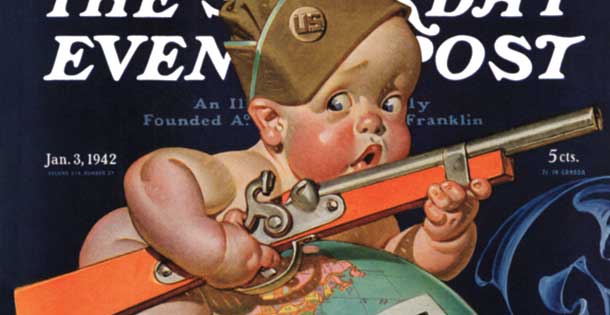As it happens, the French are masters of surgical police actions–especially in parts of the world they once ruled as overseers. Though they lost a vast colonial empire somewhat inelegantly, they’ve learned how to get in and out quickly and surely. I was a witness to one such intervention. In March 1983, there was panic across a stretch of Africa, centered on the nation of Chad, when Libyan dictator Moammar Gadhafi was contemplating an invasion from the north.
For a century, France had controlled this part of Africa, so it was hardly surprising that a detachment of the French Foreign Legion would find their way to the former colony as a show of force. For several weeks as I joined a hundred or so other journos, a host of legionnaires swaggered around the streets of Chad’s capital, N’Djamena. Of course, there have been other French actions in this part of the world where shots have been fired. Most recently in Mali, some 4,500 French troops were in the first wave that hit the desert in January 2013. By July, however, they’d handed over responsibility to a U.N. intervention force comprised largely of West African troops, and by December, all but 1,000 French troops had left the country.
But when it comes to major powers–Russia in its efforts to re-establish hegemony over former Soviet lands or China and its goal of extending its reach beyond its territorial waters–the only real answer may be an economic war. Boycotts, sanctions, tariffs, all have their price, of course. And all can easily cut both ways.
The question then is whether we are prepared to pay the price — reduced trade, profitable foreign markets drying up, tit-for-tat boycotts, and confiscatory duties. Would Citibank or Chase really want all their ATM machines and branches across Russia closed by fiat as retaliation by the Kremlin? What about the billion-dollar deals already inked by Exxon Mobil or Chevron Corp. to exploit Russia’s vast petroleum resources? America should not have to confront challenges like these alone, but neither can we leave weaker nations to fend for themselves lest we find ourselves, in the end, truly isolated, friendless. And it is a cold, hard world out there without friends.
Political opinion remains deeply divided on this question of responsibility. At the Council on Foreign Relations in April, Kagan and Mandelbaum got into a heated debate over who should take on Russia over Ukraine and how. Mandelbaum argued that the greater responsibility lay with the European nations: “They are the ones with the intense and close economic relations with Russia. They are the ones who have real leverage over Russia. …I don’t think that American leadership is going to make much difference here.”
Kagan argued that U.S. engagement was essential: “All the evidence suggests…that it actually does require a strong–I never like the world ‘leadership,’ because no one’s looking for a leader. …But we do need to provide a certain amount of backbone in this situation.”
That’s the argument in a nutshell. If we no longer have the backbone for conflicts on foreign soil, do we dare step back and let regional conflicts take their course? Or, to put it another way, if we bow out of our role as world policeman, would others be prepared to step up? It may be difficult to say to the people of Somalia, South Sudan, Syria, or Ukraine that they need to bear alone the burden of history and geography that placed them in the crossfire of violent forces of change. But we have only to look at the aftermath of other places of sharp, brutal, and ultimately short-lived conflicts–Lebanon in the 1980s, Bosnia and Kosovo in the 1990s, Georgia in 2008–and examine the outcome. With America as the world’s policeman, have we really left a better world behind us, better than if we had left them alone to work out their problems themselves?
All too often in recent years, America has been blamed for doing too much–most recently in Iraq and Afghanistan. But how often have we been blamed for doing too little? At times it may be difficult, in moral terms, to sit on our hands when it seemed as though the forces of evil were conspiring to destroy the values we hold so dearly. But sometimes, that may prove to be the best possible solution.
When left alone, most people will ultimately arrive at a form of government that works for them, or will find a means of moving history in their own direction, choosing for their friends and allies those who may have a far deeper understanding of their unique circumstances than others thousand of miles distant and historically or culturally even more remote. It was hardly by accident that Vietnam moved to end the Khmer Rouge inferno in neighboring Cambodia; or that France, with its long history in the Levant, was the only Western nation prepared to join us in a cruise missile strike on Syria.
Certainly, when attacked, as America was in World War II, or when there can be a multilateral role for U.S. forces to play in tandem with our allies (with pain and costs shared and benefits more evenly distributed) there is a case for U.S. military action abroad. But if we try to affect regime change or seek to impose our own vision of governance unilaterally, that can only, in the end, prove painful and expensive for all involved.
Become a Saturday Evening Post member and enjoy unlimited access. Subscribe now




Comments
In the 1990’s the United States did sign a treaty, together with Russia, to guarantee the sovereignty of Ukraine, in return for Ukraine allowing Soviet era Cold War nuclear weapons to be dismantled. In retrospect Ukraine made a bad agreement. – Moscow would have been a smoking lake of radioactive glass today.
President Obama rightly saw that the JCPOA deal was the correct strategic move to allow Europe to have an alternate supplier to Russian control of oil and gas supplies. The deal was single-handedly dismantled by Vlad Putin’s Orange puppet after this article was published..
I find your first paragraph a little confusing. Surely it should have read; “For the past century, the United States has frequently gone to war under the pretense of enabling freedom and democracy, but in truth, with the purpose of protecting our sources of oil or for access to populations who would buy our goods or services”?